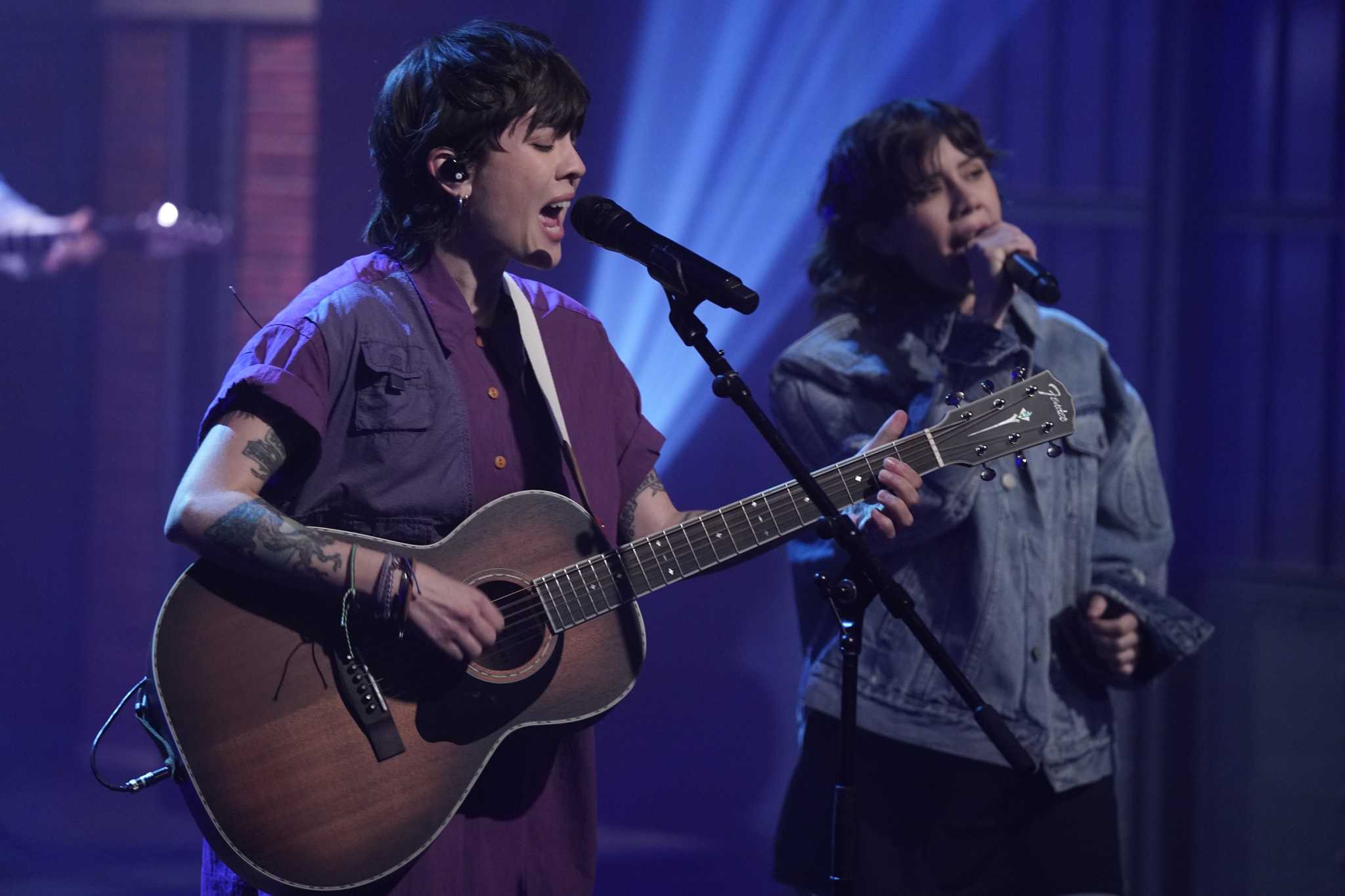
Hundreds of musicians, including Tegan & Sara, have signed an open letter calling on major record labels to drop their lawsuit against the Internet Archive, the San Francisco nonprofit known for its Wayback Machine and digital preservation efforts.
Hundreds of musicians, including Tegan & Sara, Open Mike Eagle and Kathleen Hanna of Bikini Kill, have signed an open letter calling on major record labels to drop their lawsuit against the Internet Archive, the San Francisco nonprofit known for its Wayback Machine and digital preservation efforts.
The lawsuit, filed by industry giants such as Universal Music Group and Sony Music, targets the Archive’s Great 78 Project, a long-running initiative to digitize and preserve fragile archival records.
The recordings, featuring historic performances by artists such as Frank Sinatra, Ella Fitzgerald and Billie Holiday, have been made freely accessible to the public to “ensure the survival of these cultural materials for future generations to study and enjoy,” according to the Archive.
Advertisement
Article continues below this ad
The labels’ legal action seeks $621 million in damages, claiming the Archive’s free public streaming of these rare recordings constitutes copyright infringement.
Brewster Kahle, founder of the Internet Archive, walks in 2021 outside its offices, which are housed in a former Christian Science church building in San Francisco.
However, the musicians’ open letter, organized by the nonprofit Fight for the Future, frames the lawsuit as a dangerous threat not only to the Internet Archive but to music preservation as a whole. The letter urges labels to move away from profit-driven litigation and instead support musicians and the preservation of cultural materials for future generations.
“We don’t believe that the Internet Archive should be destroyed in our name,” the letter reads.
It also highlights the financial struggles faced by musicians, particularly in the digital age, where streaming platforms and monopolistic ticketing systems have made it increasingly difficult to make a living.
Advertisement
Article continues below this ad
“The music industry is not struggling anymore,” the letter states. “Only musicians are. We demand a course-correction now, focused on the legacies and futures of working musicians.”
The letter advocates for alternative approaches to support artists, including ensuring that musicians keep 100% of merchandise sales and reducing the dominance of platforms like Spotify, which many artists feel underpays them.
Other artists who signed the letter include Deerhoof, Julia Holter, DIIV, Eve 6, Real Estate, Kimya Dawson, Speedy Ortiz, Julia Holter, Spencer Tweedy, Ted Leo, Mary Lattimore and others.
The Internet Archive, based in the Richmond District, describes itself as a digital library dedicated to providing “universal access to all knowledge.” Its Great 78 Project has digitized over 400,000 recordings since it launched in 2016.
The lawsuit, which is currently being heard in a San Francisco federal court, is part of a broader trend of increasing conflict between tech-driven preservation efforts and traditional copyright holders.
Advertisement
Article continues below this ad
In May, a judge allowed the case to move forward, rejecting the archive’s request to dismiss parts of the claims based on outdated copyright violations. If the labels win, the nonprofit could face devastating fines, threatening the future of similar preservation efforts.
The Internet Archive’s headquarters in San Francisco’s Richmond District.
In a separate but related legal battle, the Internet Archive recently opted not to challenge a U.S. Court of Appeals ruling that upheld a decision finding it in violation of copyright law for its e-book lending program.
In September, the Second Circuit affirmed a Manhattan federal court’s ruling, granting a permanent injunction against the archive’s “controlled digital lending” initiative, which had allowed users to access free copies of books, including works by Toni Morrison and J.D. Salinger.
The lawsuit, filed in 2020 by major publishers Hachette, HarperCollins, John Wiley & Sons and Penguin Random House, argued that the archive’s practices infringed on their copyrights.
Advertisement
Article continues below this ad
Chris Freeland, the archive’s director of library services, posted a brief statement on its website saying he was “deeply disappointed” with the Second Circuit’s ruling. He added that the archive would continue to honor its agreement to “remove books from lending at their member publishers’ requests.”
Reach Aidin Vaziri: avaziri@sfchronicle.com
Aidin Vaziri is a staff writer at The San Francisco Chronicle.
About
Contact
Services
Account
